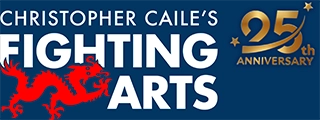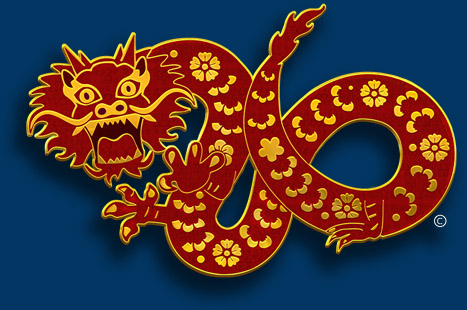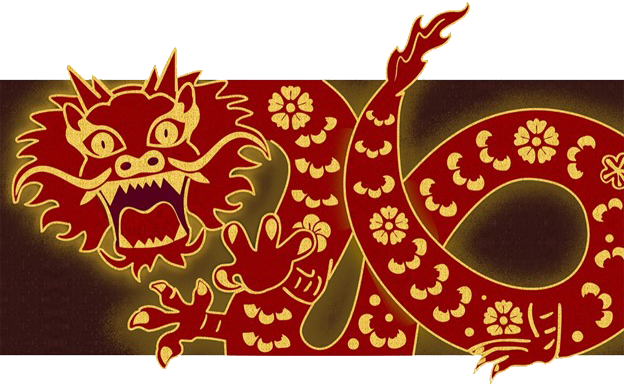What Is A Dojo?
By Jeff Brooks
Editor's Note: This article is excerpted from Jeff Brooks' new book, "The Rhinoceros Tale" now being sold in our e-store.
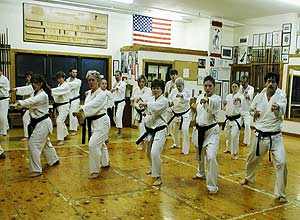
When I opened my dojo, Northampton Karate, in the old Cutlery Mill in Northampton Massachusetts, I had been training for ten years. I knew that if I was to take responsibility for other people's karate practice, to build on what was good in our tradition but not repeat the mistakes of the past, I needed to answer precisely:
What is a "dojo"?
A room? No it can't be a room because the room our dojo is in once housed rows of five ton drop-forges that pounded out sheets of metal into knives and forks and spoons, for a hundred and fifty years before we got there. And when we move out, as we will sooner or later, an office will probably move right in. Several times a year we travel to practice at a beach or a lake or in the woods or in a meadow or at another dojo and we say "the dojo is going to the beach this weekend…" So the dojo can't be the room.
Is the dojo the group of people? Not really, because since we opened the dojo thousands of people have come and gone. And although some of the current members have been practicing consistently for a long time none of them were there the first day we opened, except me. None of them have been there every day, and none will be there some years in the future, including me, and yet it still is and will be the dojo.
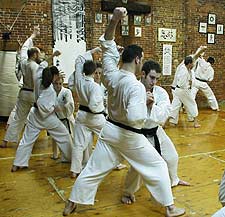 Does a dojo consist of a style of karate, a particular knowledge set? Is it a certain way of moving or a group of techniques taught via a specific teaching lineage? There are many places that teach the kind of techniques we teach, but they are not all our dojo. And if you compared the way we moved the day we opened to the way we move now, you would see that the quality of the practice has changed and deepened. We teach some techniques with a very different understanding than we once had. We teach ways of moving that we didn't know then. We have added some valuable insights and have discarded some methods that were not good.
Does a dojo consist of a style of karate, a particular knowledge set? Is it a certain way of moving or a group of techniques taught via a specific teaching lineage? There are many places that teach the kind of techniques we teach, but they are not all our dojo. And if you compared the way we moved the day we opened to the way we move now, you would see that the quality of the practice has changed and deepened. We teach some techniques with a very different understanding than we once had. We teach ways of moving that we didn't know then. We have added some valuable insights and have discarded some methods that were not good.
The teaching lineage itself is not a particular thing. It is not a precisely defined chain of people who passed on an unaltered system from generation to generation. The lineage has had many influences. Many cultures crossed paths on Okinawa. It was for centuries the confluence of many transmission streams, flowing from different regions of China, from all over South Asia and beyond, and filtered through many Okinawan teachers.
Selections – what the Okinawans and their teachers learned and what they passed on – were made based on the aptitudes and understandings and prejudices and compromises and discoveries of the practitioners. Additions and deletions were made over time. Continually. Intentionally and unintentionally. Styles are fluid. They are not stable, not fixed at some point in history. We can document that martial arts styles are not found artifacts, they are alive and responsive to conditions; they are changing all the time. Although the name of our style has stuck for the last fifty years, in the decades that I have been practicing I have seen it change and seen many variations in the way our style is practiced by different people in different dojos, in different countries. The dojo is not the "style."
Is the dojo me? No. I am not there all the time. I teach only a fraction of the classes on the schedule each week. The dojo would still exist if I were gone tomorrow.
So what is it? We know it exists. We know it exists because we have been practicing. Our bodies and minds and lives have changed. We have experienced this. We know it. New people are seeking it out and joining in and this is having a real effect on their lives. It exists. But what is it, exactly?
Is this an important question? It is if you make the mistake of thinking that the dojo is an institution with fixed qualities. That it is something that can and will exist independent of or external to the lives and actions of the people who practice in it.
We tend to take for granted the objective existence of the things that sustain us. Then, sometimes, we presume upon them or take unfair advantage of them. By cashing in the investment of spiritual capital earlier members made in the group, we damage what was sustaining us. For example, crooks who rig financial markets depend for the success of their crime on the trust that their predecessors built, through their honest dealing. The same kind of corruption can happen in a dojo when people wear ranks they do not honor with hard work and good conduct, but instead trade on their predecessors' reputations. This deception hurts their group in the future, the other members, and ultimately will ruin their own chances of happiness. It is similar to the way in which people sometimes take their families or their marriages for granted. Or operate in the assumption that their job is theirs for good. Or make the same false presumption as the old European nobility who thought their social position, income, and relationships were fixed, based on qualities inherent in them. Sometimes people take their spiritual life as something bestowed and guaranteed; as if nothing were required of them to make their inner life sound.
We act as if the world will retain its shape regardless of our action. The decline that comes from this presumption can ruin good work, good countries, families, companies, religions and dojos.
Jeffrey M. Brooks
Jeff Brooks (9th dan), began martial arts training in 1978 and opened his first karate dojo in Northampton, MA (1988 through 2009), while also conducting self-defense seminars, professional programs in combative skills and served as a regular contributor on Zen and karate-related topics to FightingArts.com.
Jeff then moved to South Carolina and started a career in law enforcement, serving as a police officer, then detective, defensive tactics instructor, firearms instructor, PPCT instructor, Deputy US Marshal, and Deputy Sheriff. After retirement, he founded Mountain Karate in Saluda, NC.
In karate Brooks received his 5th degree Black Belt from the Nagamine honbu dojo, his 7th degree black belt in 2004, and his 9th degree black belt in 2022, in recognition of his formation and leadership of Yamabayashi Ryu. He studied with leading teachers in Okinawan, Japanese, and Chinese traditions, in the US and overseas, including Katsuhiko Shinzato (the translator of Shoshin Nagamine's Essence of Okinawan Karate Do, and formerly a student of the Kishaba brothers' karate and kobudo); Sogen Sakiyama, Roshi (direct student of Miyagi Chojun, and practitioner of Goju-ryu karate); and Shoshin Nagamine (Chief of the Motobu District Police, Mayor of Naha, and founder of Matsubayashi Shorin Ryu).
Jeff Brooks has written hundreds of published articles on martial arts, and Zen and has been cited widely online and in print. He wrote speeches and presentations for high profile public figures in politics, media, business and the arts.
He is author of several books including "True Karate Dō", available on Amazon.com
Search for more articles by this author:
